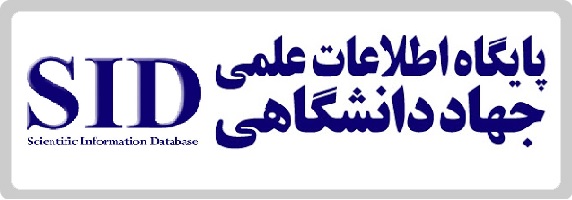The Relationship Between Linguistic Understanding and Tacit Knowledge in Wittgenstein; Evaluation of the Scandinavian Approach
Keywords:
Wittgenstein, Scandinavian approach, Linguistic understanding, Tacit knowledge, abilityAbstract
AbstractLater Wittgenstein considers understanding (especially linguistic) in relation to ability. He believes that the grammar of the word "knows" and "understands" is evidently closely related to the grammar of the word "can” and “is able to”. An interpretation of the relationship between understanding and ability can be found in the works of Scandinavian philosophers. Johansen, one of the most prominent figures in this movement, believes that linguistic understanding is a strong form of tacit knowledge. tacit knowledge means that we know things that we cannot, in principle, articulate linguistically. In this article we will show that the interpretation cannot explain this simple phenomenon that we immediately understand when we encounter linguistic words and phrases according to the context and position of the sentence. In addition, the interpretation of tacit knowledge is conceptually ambiguous. Ultimately is unclear that Wittgenstein really agrees with this kind of interpretation of understanding due to the close relationship between the concept of intuition and tacit knowledge.Key words: Wittgenstein; Scandinavian approach; Linguistic understanding; tacit knowledge; Ability. When we come face linguistic words and phrases, we understand them immediately. We understand them the moment we face them. In Phenomenological terms, this is a simple description of hearing linguistic phrases. But it is difficult for some theories to articulate this simple description. One of these theories is related to Wittgenstein's later view of meaning and language. He describes this problem in paragraph 138 of his work Philosophical investigations (1986) as follows: “… We grasp it in a flash, and what we grasp in this way is surely something different from the 'use' which is extended in time!”To solve this misconception, Wittgenstein examines what understanding is in paragraphs 143 to 197 of this book. He gives several reasons why understanding is not a comprehension of a mental thing or what he calls "particular circumstances" The general reading, in Wittgenstein's view of understanding, is that it is the same as ability or in relation to ability. In Philosophical investigations he writes: “The grammar of the word "knows" is evidently closely related to that of "can", "is able to". But also closely related to that of "understands". (Mastery' of a technique)” (1986, $150).An interpretation of the relationship between understanding and ability can be found in the Scandinavian approach to Wittgenstein. Johannessen (1990), one of the most prominent figures in this movement, believes that linguistic understanding is a strong form of tacit knowledge. Strong tacit knowledge means that we know things that we cannot, principally, articulate. One of the best examples of strong tacit knowledge is skill work. A skilled craftsman who makes significant works of art with mud, knows what he is doing. For example, how to hold hands, how to prepare raw materials, etc. are effective in making a jar, and many of them can be learned through experience and practice, but cannot be formulated in linguistic forms.With this in mind, in three steps, Johannessen tries to show why linguistic understanding is a kind of tacit knowledge according to Wittgenstein. In the first stage (1990a: 159) he believes that the use of language is based on following the rule and following the rule is considered to be an activity. Johannessen’s second point (1990a: 161-3) is that the use of linguistic rules is irregular. According to what we said in the first point, following the rule is an activity. Finally, Johannessen's last point (1990a: 159-160) is that practice and action should be considered as "intransitive understanding".And according to Wittgenstein, intransitive understanding is a kind of understanding that is not expressed and cannot be formulated linguistically (Johannessen, 1990a: 167). Like understanding music or understanding a poem that cannot be translates or expressed differently from what it is now. The application of the linguistic rules is not regular; it is not interpretable. Just as understanding a work of art or understanding music or understanding poetry is an experience that cannot be replaced by anything else and cannot even be delivered by other means, so the use of a rule cannot be expressed by another rule.But can this interpretation of the relationship between understanding and ability, which ultimately considers understanding as a kind of tacit knowledge, provide an answer to the main question of this article, which was raised in paragraph 138 of the Philosophical investigations? Namely, how to "immediately” understand a phrase or a word which has continuous application?If we emphasize on the characteristics of knowledge in tacit knowledge, then it seems that Johannessen places Wittgenstein among philosophers who have a cognitive view of linguistic understanding. Understanding linguistic comprehension as a kind of knowledge (whether implicit or implicit) rises criticisms that any theory which considers comprehension as a kind of knowledge must respond to. For example, according to some philosophers, (linguistic) understanding is compatible with Gettier problem and chance, while knowledge is not. Or that understanding is transparent while knowledge, due to the factor of truth, which has an external aspect, is not transparent.The second objection is that understanding as an ability can provide an explanation for understanding linguistic expressions in a typical way (meaning of the expression type). This refers to understanding a linguistic phrase only according to its linguistic meaning and not in relation to the situation of its utterance, the way of expression, gesture, etc. This is the ability that any native-speaker has. But the main point of understanding a linguistic phrase is not understanding in typical form, but in a specific form. That is, understanding a phrase in a particular situation and according to the situation, the tone of expression, gesture, and so on. Johannessen's arguments may be used to obtain linguistic rules, but he does not talk about understanding a certain sentence in a particular situation.The third objection to Johannessen's interpretation is whether Wittgenstein really supports the thesis of tacit knowledge. The term “tacit knowledge” is not used in Wittgenstein's works, but a term close to the tacit knowledge used in Wittgenstein's works is the concept of ‘intuition’. In general, we can talk about the correlation between the concept of intuition and the concept of tacit knowledge. For example, a skilled craftsman who has knowledge of something but cannot express it, intuitively knows what the solution is when faced with a defect or problem. Wittgenstein explicitly believes that grasping the rule is not a matter of intuition. Because intuition ultimately is seen as an internal thing and a process or state of mind, while he believes that no hidden process can be equal to understanding or consolidating the understanding, while tacit knowledge is a hidden process. Now, according to what has been said, even if the concept of tacit knowledge is not exactly the same as the concept of intuition, but since the literature under discussion at least suggests a close relationship between these two concepts, to attribute tacit knowledge to Wittgenstein and to understand linguistic understanding as a kind of strong tacit knowledge should clarify the relationship between tacit knowledge and intuition. And this is what Johannessen did not do.





